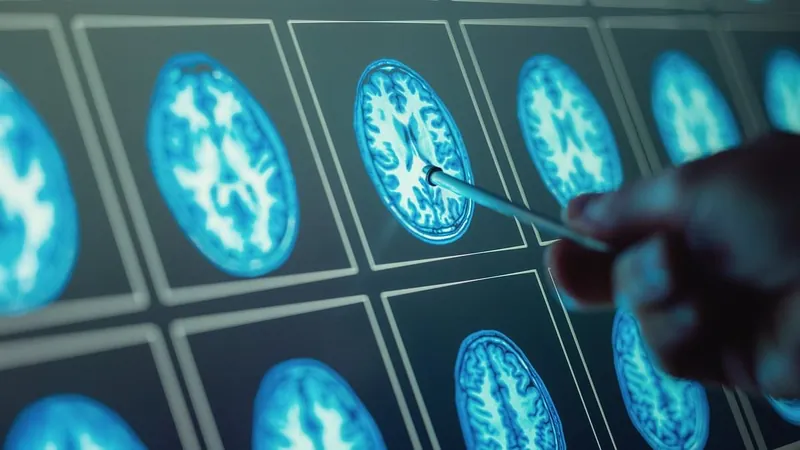
Breakthrough Study Unveils the Three Critical 'Waves' of Brain Aging – Find Out If You’re at Risk!
2024-12-09
Author: Ling
Understanding the Peaks of Brain Aging
As we journey through life, the perception of aging can vary widely; some feel 'old' when they turn 60, while others may not feel the weight of age until they reach their 80s. However, a groundbreaking new study reveals that our brains experience three significant 'peaks' of aging at specific ages—and it all begins before 60.
Researchers have identified that levels of 13 proteins associated with brain aging show marked increases at ages 57, 70, and 78. These ages could be pivotal for interventions aimed at maintaining brain health and potentially delaying neurodegenerative diseases, such as dementia.
Key Findings from the Study
The study, led by experts at the First Affiliated Hospital of Zhengzhou University, analyzed blood plasma proteins from nearly 5,000 individuals aged 45 to 82. The team discovered that these 13 proteins, notably Brevican (BCAN), which is connected to the onset of dementia and other neurological issues, exhibit pronounced age-related changes. GDF15, another significant protein linked to age-related diseases, also showed increases at these critical ages.
Implications for Brain Health
The researchers suggest that these peaks offer an opportunity for timely interventions in brain health. With projections indicating that by 2050, the global population aged 65 and older will exceed 1.5 billion, understanding the aging process is more crucial than ever. In the UK alone, around one million individuals are living with dementia, which remains the leading cause of death.
A Call for Monitoring and Intervention
Furthermore, the study posits that the latter part of the fifth decade, as well as the seventh and late seventh decades of life, mark essential points for monitoring and intervening in brain aging. The information gleaned from these findings not only aids in identifying biomarkers for brain aging but also paves the way for personalized therapeutic approaches tailored to combat age-related brain disorders.
Challenging Conventional Wisdom
This revelation coincides with recent research from Stanford University that has upended conventional wisdom regarding aging, revealing that changes in our bodies occur in significant 'waves.' Their findings identified key ages, such as 44 and 60, as points when noticeable declines in metabolism, skin elasticity, and susceptibility to diseases manifest, challenging the belief that aging is a gradual process.
Expert Insights
Dr. Michael Snyder, a leading professor at Stanford, emphasized the implications of these findings: “People often presume that aging is a smooth, linear process. Our research indicates that it is instead punctuated by dramatic changes.” To combat these disruptions, Snyder and his team recommend increased physical activity and healthier dietary choices as we approach these critical ages.
Conclusion
This pioneering research urges a rethink of how we approach aging and emphasizes the necessity for proactive strategies against its impacts. As science continues to shed light on the intricacies of aging, staying informed could be your best defense in preserving brain health and overall wellbeing. Don’t wait until it’s too late!



 Brasil (PT)
Brasil (PT)
 Canada (EN)
Canada (EN)
 Chile (ES)
Chile (ES)
 Česko (CS)
Česko (CS)
 대한민국 (KO)
대한민국 (KO)
 España (ES)
España (ES)
 France (FR)
France (FR)
 Hong Kong (EN)
Hong Kong (EN)
 Italia (IT)
Italia (IT)
 日本 (JA)
日本 (JA)
 Magyarország (HU)
Magyarország (HU)
 Norge (NO)
Norge (NO)
 Polska (PL)
Polska (PL)
 Schweiz (DE)
Schweiz (DE)
 Singapore (EN)
Singapore (EN)
 Sverige (SV)
Sverige (SV)
 Suomi (FI)
Suomi (FI)
 Türkiye (TR)
Türkiye (TR)
 الإمارات العربية المتحدة (AR)
الإمارات العربية المتحدة (AR)